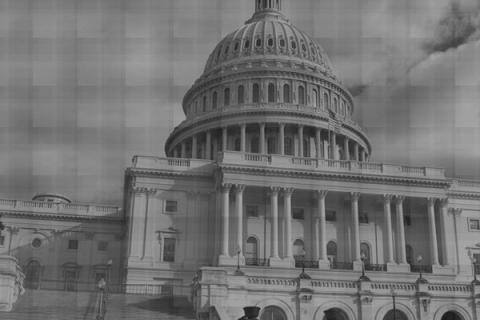Looking back on 2010, we'll all remember what a strange year it was. But while replete with iPads, vuvuzelas, Lady Gaga outfits, earthquakes, treacherous winter storms, Old Spice commercials, Taylor Swift, and YouTube videos of that 2-year-old Indonesian baby chain smoking, the single most significant event of 2010 might very well be the mobilization of the Tea Party protests into an electoral machine.
The modern (post-Obama) "Tea Party" started as a series of nationwide protests in 2009, focused on what the protestors considered the excessive growth and malfeasance of Washington, but in 2010, it mobilized its limited government philosophy into an aggressive electoral powerhouse, advancing its favorites ahead of establishment picks for Republican nominations all over the country. U.S. Senate nominations went to Tea Party candidates in Alaska, Delaware, Nevada, and Kentucky.
Only in Kentucky did the Tea Party hopeful win the general election, but that's not stopping Tea Party leaders from ramping up their efforts for 2012, with Tea Party Nation revealing just yesterday that they are targeting Sens. Dick Lugar, R-Ind., Orrin Hatch, R-Utah, Olympia Snowe, R-Maine, Scott Brown, R-Mass., and Bob Corker, R-Tenn. for primary challenges from Tea Party candidates.
In the lower house of the U.S. Congress, the Tea Party made more appreciable gains, though interestingly not in California where every single U.S. House incumbent won re-election despite the Democrats suffering their second most significant House losses in American history, nationwide. Amid its many victories and defeats, however, one thing is clear: in 2010, the Tea Party became a viable political movement that has already begun to change the face of politics in this country forever.
Mahatma Gandhi observed that as new political movements gain momentum, they suffer marginalization at first, then ridicule, and then attack. In 2008, Tea Party views were mainly relegated to Ron Paul supporters and marginalized by a mainstream media enamored with Barack Obama and complacent about the TARP bailouts. In 2009, Rick Santelli put a name on the angst more and more Americans were starting to feel, and called for Tea Party protests across the country. But, protestors were heavily ridiculed as "tea baggers", "racists", and "extremists".
As the Tea Party roars full steam ahead into 2012, there's no telling which way history may turn or how it will favor these new political movers and shakers, but looking over the past twelve months, it is easy to see how future generations will look back at 2010 as The Year of the Tea Party.

